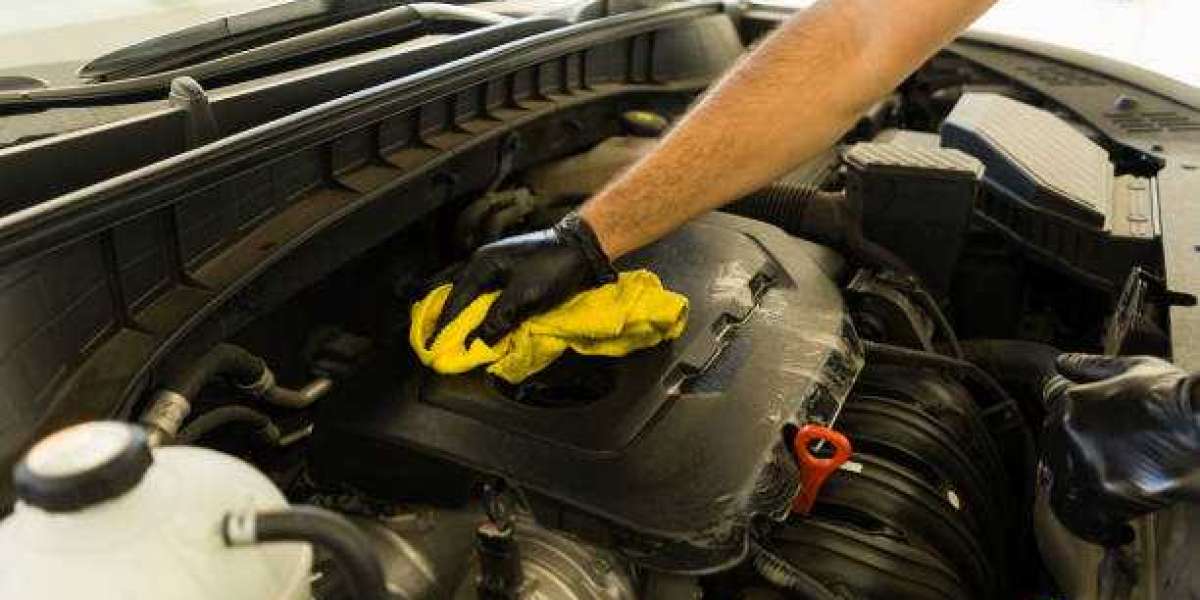Cleaning your engine bay might seem like a straightforward task, but there are several important things to keep in mind to avoid costly mistakes. By understanding what to avoid, you can make sure that your engine bay stays spotless without damaging any critical components.
Why Clean Your Engine Bay?
A clean engine bay doesn’t just look good—it also plays a key role in maintaining the performance and longevity of your vehicle. Dirt, oil, and grime buildup can lead to premature wear and potentially mask issues like fluid leaks. Regularly detailing your engine bay can make a big difference, particularly if you're looking to maintain your car’s value or live in areas prone to road salt or dust.
Precautions Before Cleaning the Engine Bay
Taking some basic precautions before you start cleaning can save you from headaches down the line. Ensuring safety and taking time to prepare properly are key for effective Engine Bay Detailing Charlotte services or any DIY cleaning session.
Importance of Disconnecting the Battery
Always disconnect the battery before cleaning the engine bay. It’s not just a safety precaution to avoid short-circuits—it also prevents electrical components from coming in contact with water.
Covering Sensitive Components
Cover parts like the alternator, fuse box, air intake, and exposed electrical wiring with plastic bags or waterproof covers. This will prevent moisture from causing damage or corrosion.
What to Avoid When Cleaning Your Engine Bay
With a better understanding of the preparation process, let's dive into the things you should absolutely avoid to keep your engine bay safe and clean.
1. Avoid High-Pressure Water Sprays
High-pressure sprays can force water into delicate electrical components, which can lead to electrical issues. Instead, opt for a gentle mist setting or a low-pressure spray for a more controlled cleaning process.
2. Don’t Use Harsh Chemicals
Harsh chemicals like bleach or strong degreasers can break down rubber, plastic, and even metal components. Use a mild cleaner or a dedicated engine degreaser that’s safe for automotive materials.
How Harsh Chemicals Can Damage Engine Parts
Strong chemicals can strip away protective coatings on wires, hoses, and seals, making them brittle over time. Stick to mild detergents or automotive cleaners for best results.
3. Avoid Cleaning a Hot Engine
Cleaning a hot engine can be dangerous. When water contacts hot engine parts, it can create steam, which can lead to burns. Wait until the engine cools down before starting your cleaning process.
4. Don’t Rush the Process
Taking shortcuts might seem tempting, but engine bay cleaning requires patience. By taking your time, you ensure that each part is cleaned without missing spots or causing unintended damage.
5. Avoid Excessive Water Exposure
Too much water can seep into electrical connectors, causing corrosion or even short-circuits. Use just enough water to rinse off cleaning products, and avoid soaking components.
6. Don’t Neglect the Battery
Your car’s battery is sensitive to moisture and chemicals. Disconnect it before cleaning, and use a brush to remove any corrosion on the terminals.
7. Avoid Direct Contact with Electrical Components
Water and electrical components don’t mix. If you need to clean around wiring or connections, use a dry brush or compressed air instead of water.
8. Steer Clear of Wire Brushes or Abrasive Tools
While it may be tempting to use a wire brush to scrub tough grime, doing so can damage engine parts. Instead, use soft brushes or microfiber cloths to avoid scratching or chipping.
9. Avoid Over-Saturating with Degreasers
Using too much degreaser can harm parts of your engine. Degreasers are powerful, so a little goes a long way. Apply it sparingly and rinse it off thoroughly.
10. Using Inappropriate Cleaning Tools
Each tool has a specific purpose. Avoid hard scrapers, wire brushes, or anything abrasive. Instead, opt for soft brushes, sponges, and microfiber cloths designed for automotive cleaning.
11. Not Drying Properly After Cleaning
Once you've finished cleaning, it's essential to dry the engine bay. Excess moisture can lead to corrosion and other issues. Use compressed air or a clean microfiber cloth to ensure everything is dry.
Conclusion
Keeping your engine bay clean can be highly rewarding, but it's important to avoid these common pitfalls. By taking proper precautions and knowing what to avoid, you’ll keep your engine in top shape, whether you’re maintaining it yourself or relying on Engine Bay Detailing Charlotte services.
FAQs
1. Can I use regular soap to clean my engine bay?
Regular soap may not be effective for removing grease and grime. Use a designated automotive cleaner for the best results.
2. How often should I clean my engine bay?
Cleaning every six months is usually sufficient for most vehicles, though more frequent cleanings may be needed in dusty or salty environments.
3. Is it safe to clean the engine bay myself?
Yes, but make sure to follow safety precautions, such as disconnecting the battery and covering electrical parts.
4. What should I do if water gets on electrical components?
If water makes contact with sensitive areas, use compressed air to dry them out and check for any issues before restarting the engine.
5. Can I use a garden hose to rinse the engine bay?
Yes, but keep the water pressure low to avoid damaging delicate parts.











